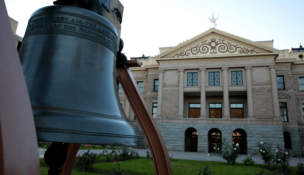Lawmakers eye removal of ‘kingmaker’ provision in campaign finance law
Jeremy Duda//April 25, 2016//[read_meter]
Lawmakers eye removal of ‘kingmaker’ provision in campaign finance law
Jeremy Duda//April 25, 2016//[read_meter]
The so-called “kingmaker” provision in a controversial campaign finance law that takes effect later this year may have to be downgraded to “princemaker” status, thanks to a proposed change being...
















